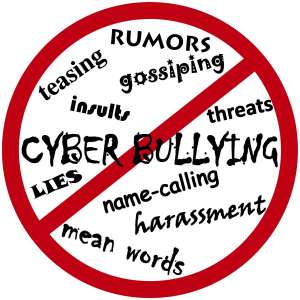
With the increase of our time online, the fact that cyberbullying cases have increased should not come as a surprise. But what makes it different than physical bullying? And what can we do to stop it?
Cyberbullying vs Traditional Bully
Most of us will probably know what cyberbullying is. But besides the main, obvious difference between cyberbullying and traditional bullying – one being online, and the other being face to face, are the two really different?
Yes. Cyberbullying, as most of us know, can involve anonymity. In fact, I believe that anonymity plays the biggest role in the severity of cyberbullying. Besides anonymity, the ability for rumours or fake news to travel through a large number of audiences at an incredible speed also enables cyberbullying cases to go sky high. Our natural instincts of wanting to fit it can also be a force that encourages cyberbullying (think herd mentality/mob mentality).
On top of it all, the fact that cyberbullying involves the public, instead of a smaller environment like workplace, or school, the damage that follows is also on a bigger scale.
The thing is, anonymity is enabling cyberbullying to a whole different level. People are more daring to do things when their identity is concealed (also when alcohol is involved). Of course, with today’s technology, a person’s IP address can be traced back. But, as we can see, a lot of people don’t think that far ahead before posting a comment.
Deleting Cyberbully
Can we really then eliminate cyberbullying? In a perfect world, we just have to raise awareness about cyberbullying and the harms it can cause. The conscience in us will say, “oh, that’s really a mean thing to do,” and cyberbullying will no longer be a problem.
Unfortunately, though, we don’t have the luxury of living in that perfection.
There are reasons for this. Ferguson, Miguel, John and Sanchez gave a few suggestions to why people bully. Besides inner aggression and possible personal problems (like trauma, or abuse), they suggested that bullying is simply satisfying. It may also be seen as a way for people to climb up the social status. So, if there’s a possibility that bullying seems to be intrinsic, is it even possible to eliminate cyberbullying?
I, honestly, don’t know.
Psychologists have been studying the bullying behaviours for years and yet there is still not one single, global method that has proven successful on the eradication of this behaviour. Take the KiVa anti-bullying program for example. Originating from Finland, the program focuses on prevention, intervention and monitoring of students in school. There were strong evidence that it worked in Finland (and maybe other different countries that adapted the program – I did not do a thorough study on this), however the same can’t be said when the Dutch used it in their schools. There were positive effects for victimizations for a while, but these effects did not last long*. It’s quite disheartening to see results like that.
But, being a hopeful person, I believe that if we do our parts, we can minimize the cases (same to be said on COVID-19!!). All forms of bullying involve perpetrators, victims and bystanders. In the physical world, I’m very sure that if either you or me witnessed a bullying incident, we will do something about it. Online, however, pushing that like button on a negative post, or on a nasty comment about somebody (just because we think it’s funny), can encourage the perpetrator.
Bullying/cyberbullying happens at every life stage, be it with children, teenagers, young adults, or mature adults. We may not all be able to be involved in the anti-bullying programs or campaigns, but we definitely are all able to be kind to one another, face to face, or online. We can also be a listening ear to those who are being victimized… or simply stand up for them.

Leave your thoughts below.
*victims did report on having more defenders against bullies. However, bullies still kept on bullying.
Extra articles:
http://www.thebullyproject.com/which_is_worse_cyber_bullying_or_traditional_bullying



I think this post can raise the awareness of this topic and maybe help people who got to experience it firsthand. Because of the coronavirus, there are more victims of bullying on the Internet. Hence more people are using the web. The coronavirus has given people a reason not only to share their fear online but also to attack each other online. Actually, during the pandemic, the Russian government has prepared a draft law on the protection of victims of harassment on the Internet. So, the so-called bullies might actually get charged according to the law. The new bill might give the victim of bullying some protection.